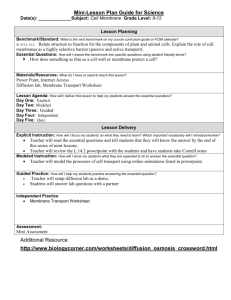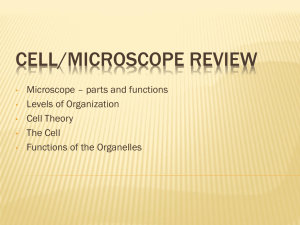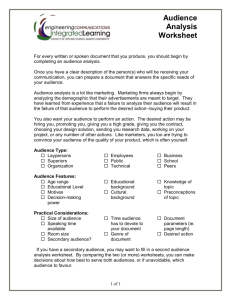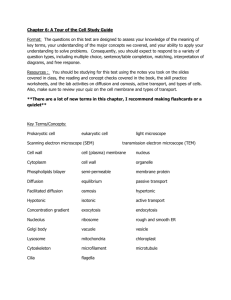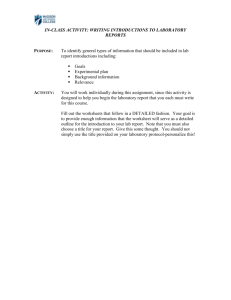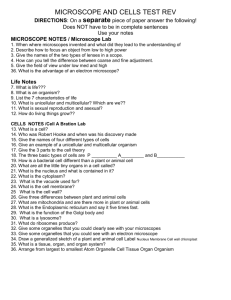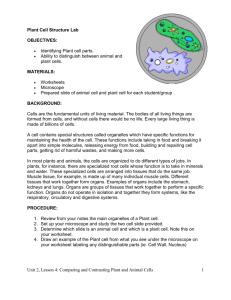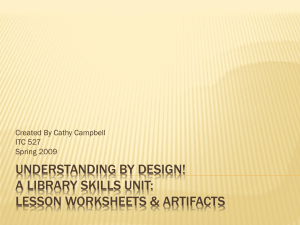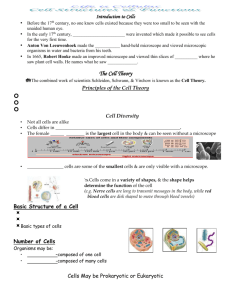Living Environment Curriculum - Whitney Point School District
advertisement
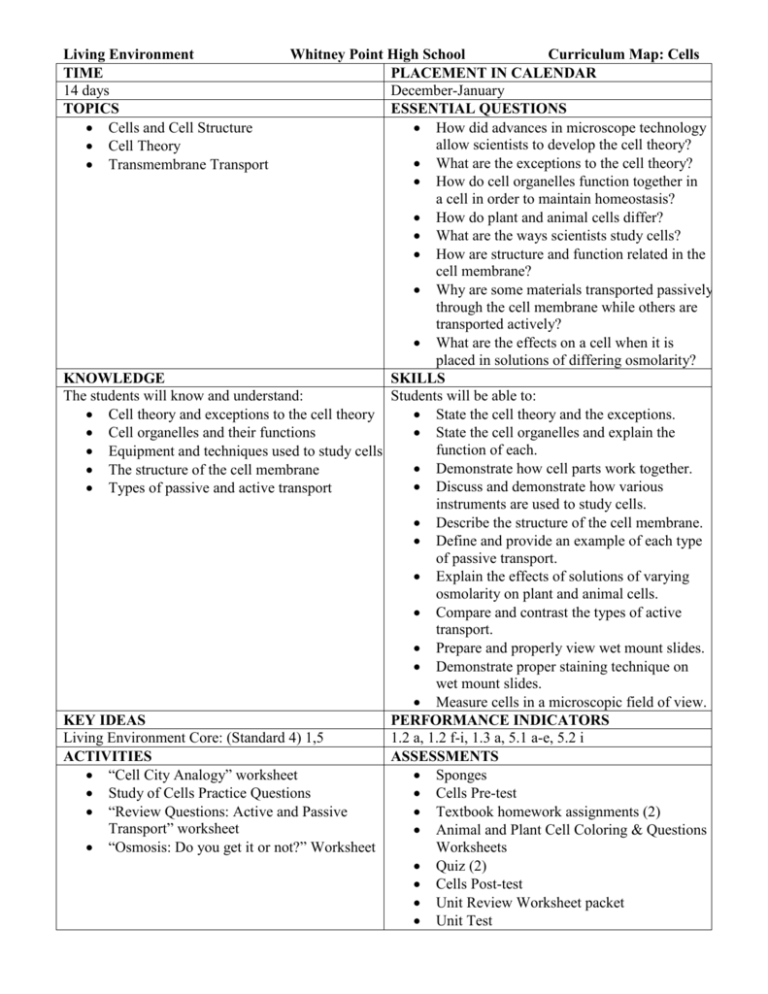
Living Environment TIME 14 days TOPICS Cells and Cell Structure Cell Theory Transmembrane Transport Whitney Point High School Curriculum Map: Cells PLACEMENT IN CALENDAR December-January ESSENTIAL QUESTIONS How did advances in microscope technology allow scientists to develop the cell theory? What are the exceptions to the cell theory? How do cell organelles function together in a cell in order to maintain homeostasis? How do plant and animal cells differ? What are the ways scientists study cells? How are structure and function related in the cell membrane? Why are some materials transported passively through the cell membrane while others are transported actively? What are the effects on a cell when it is placed in solutions of differing osmolarity? KNOWLEDGE SKILLS The students will know and understand: Students will be able to: Cell theory and exceptions to the cell theory State the cell theory and the exceptions. Cell organelles and their functions State the cell organelles and explain the function of each. Equipment and techniques used to study cells Demonstrate how cell parts work together. The structure of the cell membrane Discuss and demonstrate how various Types of passive and active transport instruments are used to study cells. Describe the structure of the cell membrane. Define and provide an example of each type of passive transport. Explain the effects of solutions of varying osmolarity on plant and animal cells. Compare and contrast the types of active transport. Prepare and properly view wet mount slides. Demonstrate proper staining technique on wet mount slides. Measure cells in a microscopic field of view. KEY IDEAS PERFORMANCE INDICATORS Living Environment Core: (Standard 4) 1,5 1.2 a, 1.2 f-i, 1.3 a, 5.1 a-e, 5.2 i ACTIVITIES ASSESSMENTS “Cell City Analogy” worksheet Sponges Study of Cells Practice Questions Cells Pre-test “Review Questions: Active and Passive Textbook homework assignments (2) Transport” worksheet Animal and Plant Cell Coloring & Questions Worksheets “Osmosis: Do you get it or not?” Worksheet Quiz (2) Cells Post-test Unit Review Worksheet packet Unit Test Living Environment Whitney Point High School Curriculum Map: Cells Labs: Using a Microscope Examining Cells Measurement in the Microscopic Field Onion vs. Cheek Cell Lab Diffusion Through a Membrane (NYS Lab) RESOURCES VOCABULARY Miller and Levine, Biology Organelle Unit 3, Chapter 7 Centrioles Guided notes Cell membrane “Cell City Analogy” worksheet Cytoplasm http://www.biologycorner.com/worksheets/cell-analogy.html Vacuole Animal and Plant Cell Coloring adapted Mitochondrion from Ribosome http://www.biologycorner.com/worksheets/cellcolor.html Endoplasmic reticulum http://www.biologycorner.com/worksheets/cellcolor-plant.html Chromosomes Nucleolus Nucleus Golgi complex Cell wall Chloroplast Lysosome Compound light microscope Electron microscope Dissecting microscope Ultracentrifuge Microdissection instruments Passive transport Diffusion Osmosis Facilitated diffusion Active transport Carrier protein pump Pinocytosis Phagocytosis
